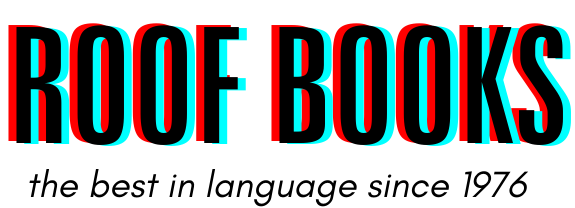HOW TO FLIT
by Mark Johnson
Disaster and delight collide in this quick-witted collection, How to Flit. Distorted advertisements, headlines, and familiar expressions pepper the pages, as the poems endlessly calculate—“In fifty years the export market for tomorrow’s revels imagine!”In Maxims (“Consolation helps those in trouble, if speaker is trustworthy”) are quickly converted into commodity (“In(t-shirt idea)”), while basic needs are left unmet, bodies left untended. Mark Johnson’s language is eclectic and even alien, full of “linguistic oddities” that are at times other-worldly. The concerns, however, are earthly, material, and universal—food, medical care, labor, and housing. His insight is biting, getting at the contradictions of contemporary distribution of care and capital that result in simultaneous surplus and neglect—a contradiction that he prods at to reveal “how savagely could be harrowed and still function.” From within alien language and material alienation humor leaks out and delight. In fact, it is impossible not to delight in these poems, replete with tenderness and hilarity. In a world of neglect and precarity these voracious poems manage to “have a good appetite though... eat what my pinky nail collects... in fact there are only two / things I can’t eat for breakfast --- lunch / & dinner.”
This collection both executes and exceeds critique of a harrowing world, allowing something fresh and fanciful to emerge—“he will go find the bank where he left it after his last frolic.” Amidst calculations, numerical evaluations, and the dually ominous and refrain “no free food,” emerges a utopian flash—“DREAM FREE FOOD NOW!”
How To Flit demonstrates that even amidst the confines of an exploitative and neglectful economic system, there is still room for humor and ecstasy. Johnson dares to render the hypocrisies of contemporary commercialization and nevertheless frolics. This book fills the reader with the FOOD that haunts the text–a full meal that is endlessly surprising, nourishing, and delicious.
People are saying:
Mark Johnson reads more widely than just about anyone—consumes text and contemporary ideas equally voraciously and without academic boundaries, lives with text in a process whose output is poetry, here, in, sculpted to match the frenetic pace of contemporary information and the mind that never stops sorting it, sometimes so overloaded it becomes ecstatic, or gets caught in a loop, or creates a really good joke. Whatever the case, “in 50 years the export market for tomorrow’s revels / imagine!” Take a wild ride on the outskirts of “today with dissolution booming.“ Just remember “NO FREE FOOD!“
– Kristen Gallagher
In this strange, funny, and fast-paced book, flitting is something like the opposite of counting: skipping from one phrasal unit to the next, without accumulation or consistent measure. These poems are filled with numbers, but they are not mathematical; the lines feel intuitively arranged, and they make a kind of intuitive sense. The unit of composition is surprise: the poems flit between discursive registers quickly. The dominant tone is one of dense colloquial erudition, although glimmers of many other recognizable and unrecognizable discourses continually interrupt. At once sculpted, ambient, and humorous, How to Flit is an interesting example of post-Language collage-based writing that uses a wide variety of source material to create odd and often beautiful linguistic textures. But more than that, it’s a great read.
– Steve Zultanski
How to Flit mixes archaic lexicons with the fragmented detritus of machine processed text, seemingly random snippets of appropriated quotes merged with the mode of ephemeral commercial copy, and a series of recursive, cannibalizing permutations. Johnson samples "a crop of technical slang," "linguistic oddities," and "a language reliant on gesture" to the tune of a lyric subjectivity by volatile turns hesitant and aggressive, deluded or doubting, triumphant or defeated, wry, excitable, frustrated, mardy, sassy, smug. The result is like an extended set by a dj dropping crateloads of warps and distorted riffs from the obscurities, b-sides, audio curiosities, and hoarded finds of a lifetime of dusty milk-bin trawls.
– Craig Dworkin
About the Author:
Mark Francis Johnson is the author of Can of Human Heat, Treatise on Luck, and After Such Knowledge, as well as numerous shorter works. He lives in Philadelphia, where he sells antiquarian books and rare records out of his small shop, Hiding Place.

